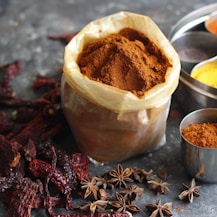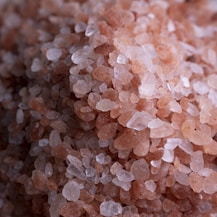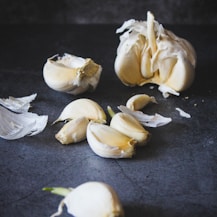Natural Remedies for Tooth Infection | 7 Household Items for Quick Relief
Discover effective and easy-to-use natural remedies for tooth infection. Learn about 7 household items that provide quick relief from toothaches and infection.
There aren’t many pains that rival the discomfort of a tooth infection. Imagine a sleepless night, where every heartbeat echoes through a pesky toothache. The constant throbbing, sensitivity to hot or cold, and the overall sense of unease can get in the way of daily life.
Statistics say that over 25% of adults worldwide experience toothache due to infections, and while conventional treatments are out there, an increasing number of people are looking into natural remedies for relief. In this guide, we'll dive into the world of holistic oral care and explore 7 natural remedies to help you ditch the discomfort associated with a tooth infection.
Tooth infections, scientifically known as dental abscesses, occur when bacteria get inside the innermost part of the tooth—the pulp—or the surrounding gums. According to the World Health Organization (WHO), untreated dental infections can lead to severe problems, affecting not only oral health but potentially affecting your whole well-being. The common discomforts associated with tooth infections are not merely inconveniences; they serve as signals that our bodies need attention and care.
The pain may vary from a dull ache to sharp, shooting sensations, often irritated by chewing or being exposed to temperature extremes. Swelling, redness, and even the occasional fever can accompany these infections, making them not just a dental concern but a holistic health issue. The spread of bacteria from the oral cavity has been linked to an increased risk of heart diseases, diabetes complications, and adverse pregnancy outcomes.


While the conventional approach involves antibiotics, pain relievers, and dental procedures, natural remedies offer a holistic alternative. The American Dental Association (ADA) recognizes the appeal of natural remedies lies in their potential to address not just the symptoms but also the root causes of tooth infections. Natural remedies can often provide effective relief while minimizing side effects and promoting overall oral health. As we explore these remedies, keep in mind that they complement conventional treatments and can be incorporated into your daily routine for long-term well-being.
1. Clove Oil:
An age-old solution with a scientific twist. This essential oil, extracted from the cloves of the Syzygium aromaticum plant, owes its pain-relieving properties to a compound called eugenol. The Journal of Oral Microbiology emphasizes the importance of eugenol in dentistry, acknowledging its potential to stop the spread of bacteria and ease dental pain, making clove oil a promising remedy for those fighting with the discomfort of tooth infections.
For immediate pain relief, dilute a few drops of clove oil with a carrier oil(olive, grapeseed, castor oil) and apply it to the affected tooth using a cotton ball. The numbing effect can offer a welcome respite from the relentless ache. It's worth noting that while clove oil can provide temporary relief, consulting with a dental professional is crucial for a comprehensive approach to addressing the underlying infection.
2. Turmeric:
A golden-hued spice renowned for its culinary uses and potent medicinal properties. At the heart of turmeric's healing prowess lies curcumin, a bioactive compound celebrated for its anti-inflammatory and antibacterial characteristics. Research published in the Journal of Medicinal Chemistry emphasizes curcumin's potential to inhibit bacterial growth and reduce inflammation, making it a promising candidate for addressing tooth infections.
Integrating turmeric into your daily routine can be as simple as creating a turmeric paste. Combine turmeric powder with water to form a paste, apply it directly to the affected area, and let its natural properties work their magic. Additionally, adding turmeric to your diet not only supports oral health but contributes to overall well-being. The Journal of Indian Society of Periodontology highlights turmeric's role in promoting oral hygiene, underscoring its potential as a holistic solution for dental care.
3. Tea Tree Oil:
Celebrated for its powerful antimicrobial properties. The Australian tea tree, Melaleuca alternifolia, from which the oil is derived, has been a staple in traditional medicine. Research published in the International Journal of Antimicrobial Agents highlights tea tree oil's effectiveness against various strains of bacteria, showcasing its potential as a natural antiseptic.
Utilizing the benefits of tea tree oil can be as straightforward as creating a DIY mouthwash or oral application. Mixing a few drops of tea tree oil with water forms an effective mouthwash, while combining it with a carrier oil allows for direct application to the affected area. This natural approach can provide relief from the discomfort of tooth infections while targeting the underlying microbial causes.
4. Saltwater Rinse:
Creating a saltwater rinse is a simple process. Mix a teaspoon of salt in a glass of warm water, making sure it dissolves completely. Gargle the solution for 30 seconds before spitting it out. This easy-to-follow routine can be repeated several times a day, providing a cost-effective and accessible means of relieving the discomfort that comes with tooth infections.
5. Garlic:
At the heart of garlic's healing potential lies allicin, a bioactive compound with notable antibacterial properties. Studies, such as those published in the Journal of Food Science, affirm allicin's ability to hinder the growth of bacteria, making garlic a compelling natural antibiotic.
Using garlic for tooth infection relief can take various forms. Chewing a raw garlic clove releases allicin, allowing it to directly combat oral bacteria. Additionally, creating a garlic paste for oral application or adding garlic into your meals contributes to its holistic benefits for oral health.
6. Hydrogen Peroxide:
Hydrogen peroxide emerges as a versatile and safe antiseptic solution. Widely recognized for its use in wound care, hydrogen peroxide also plays a role in maintaining oral health. The American Dental Association (ADA) acknowledges the antimicrobial properties of hydrogen peroxide, emphasizing its ability to reduce the bacterial load in the oral cavity.
Mix equal parts of 3% hydrogen peroxide and water to create a solution suitable for oral use. Gargling with this mixture for 30 seconds and then spitting it out can help reduce bacteria and alleviate oral discomfort.
7. Aloe Vera:
The gel extracted from the leaves of the aloe vera plant contains compounds such as acemannan, which contribute to its therapeutic effects. Research in the Journal of Oral Pathology & Medicine recognizes aloe vera's potential in promoting wound healing and reducing inflammation, making it a compelling natural remedy for soothing the pain associated with tooth infections.
Extract the gel from a fresh aloe vera leaf or opt for a high-quality aloe vera gel from a trusted source. Applying this gel directly to the affected area provides a cooling sensation and may contribute to pain relief.
Beyond conventional dental care and dietary choices, holistic approaches can further contribute to preventing future tooth infections. Stress management, adequate sleep, and regular exercise support overall immune function, reducing susceptibility to infections. Practices like oil pulling, recognized in the Journal of Traditional and Complementary Medicine, may also contribute to oral health by reducing harmful bacteria in the mouth.
Remember, while natural remedies can offer relief, consulting with a dental professional is crucial for a comprehensive approach to addressing tooth infections. Incorporate these remedies into your routine mindfully and pay attention to how your body responds. I hope this guide empowers you to explore natural solutions, fostering not only relief from tooth infection discomfort but also a deeper connection with your oral health. Nature has provided us with a bounty of remedies; it's up to us to harness their potential for a healthier, more vibrant smile.









